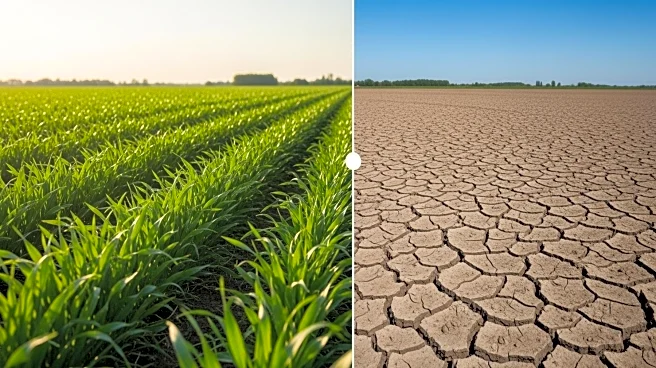What's Happening?
A study published in Nature examines the unequal impacts of future droughts on global croplands, emphasizing the role of climate and land-use changes. The research indicates that climate change will significantly increase the risk of severe and extreme droughts, particularly under high-emission scenarios. These droughts are expected to disproportionately affect low and middle-income countries, exacerbating food security challenges. The study uses climate models to project changes in drought risk and highlights the need for adaptive strategies to mitigate these impacts.
Why It's Important?
The findings underscore the urgent need for global agricultural sectors to adapt to changing climate conditions. As droughts become more frequent and severe, crop yields could decline, threatening food supply chains and increasing prices. This situation poses a significant risk to global food security, particularly in regions already vulnerable to climate variability. The study's insights could inform policy decisions and drive investments in sustainable agricultural practices and technologies.
Beyond the Headlines
The study also raises ethical and economic questions about the responsibility of high-emission countries in supporting vulnerable regions. As climate change impacts become more pronounced, international cooperation and funding for climate adaptation and resilience-building in agriculture may become critical. The research highlights the importance of integrating climate considerations into land-use planning and agricultural policy to ensure equitable and sustainable food systems.









